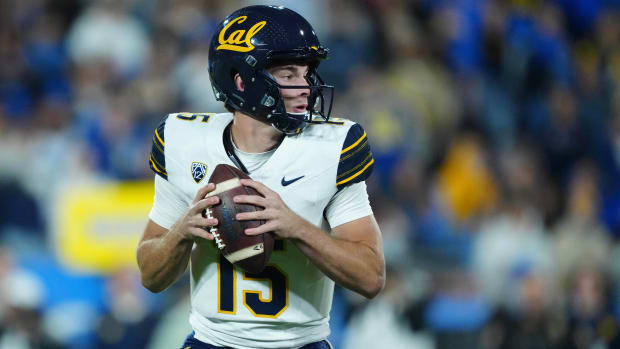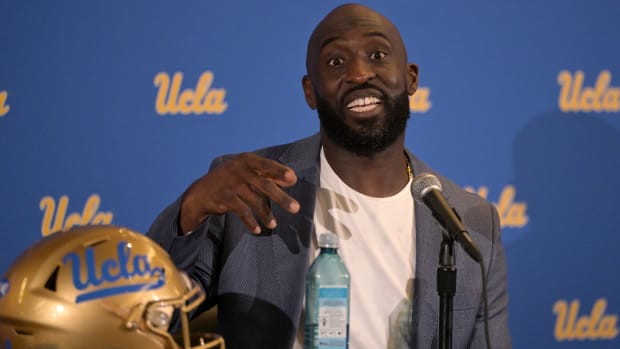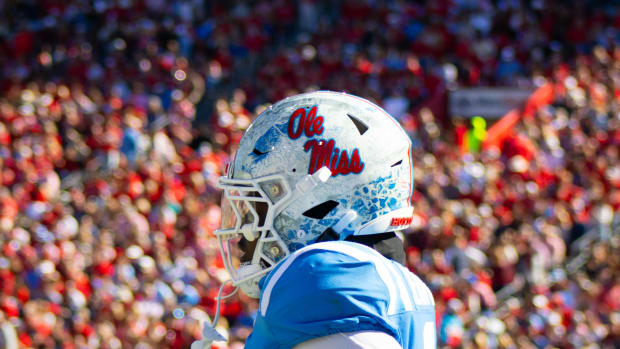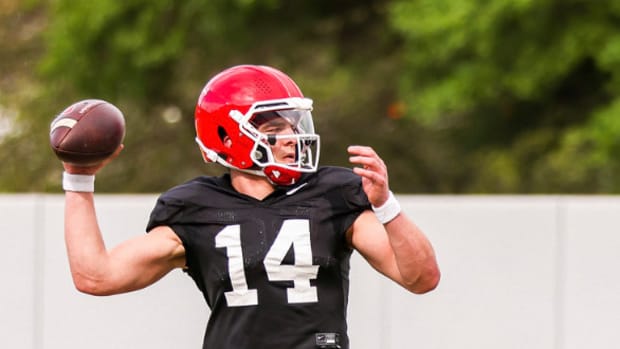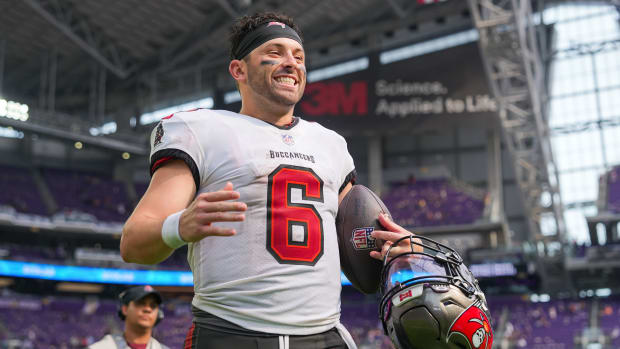Defensive-minded and offensively innovative, Bob Stoops goes out on his own terms
When Bob Stoops arrived as the head coach at Oklahoma prior to the 1999 season, it marked the fourth football coach in Kelvin Sampson’s first five years as the Sooners basketball coach. The night before Stoops’ introductory press conference, Sampson, athletic director Joe Castiglione and Stoops ate at Louie’s Grill & Bar. After seeing the struggles of John Blake, Howard Schnellenberger and Gary Gibbs, Sampson admits being a bit cynical about Sooner football.
By the time dinner ended, however, Sampson was struck by the 39-year old Stoops. “His heart rate never changed,” Sampson said by phone on Wednesday evening. “There was a calmness about him that you just don’t normally see. Bob had an extremely quiet intensity about him.”
Bob Stoops showed early he'd be a solid head coach, and for years he was exactly that
Over the course of the next 18 seasons, Stoops authored one of the defining college football coaching careers of this generation. He revived Oklahoma’s ailing football brand, won the 2000 national title and coached two Heisman trophy winners. He’ll be remembered as a defensive guru who enabled offensive innovators, an unassuming coach unafraid to speak out and a reluctant face of a sport that radically changed during is nearly two decades as head coach. And he did it all while maintaining the same low-key intensity that first struck Sampson that night. “Bob did more for Oklahoma maybe than any other coach,” Sampson said. “Barry Switzer will always be the king there in some ways because Bob wasn’t interested in being the king.”
Stoops retired unexpectedly on Wednesday, sending shockwaves through a university, state and sport he became indelibly intertwined with. His departure means one of the sport’s hallmark faces is gone from its landscape. “I think it’s a big blow for college football,” Ohio State coach Urban Meyer said on Wednesday night. “Very rarely do you get to walk out on your own terms. If that’s the case I’m very happy for him.”
That is the case. Stoops retired in a manner that perfectly fits his understated image. Oklahoma made the announcement Wednesday afternoon, releasing a statement that the school is handing the program over to 33-year old Lincoln Riley, the Sooner offensive coordinator. Stoops stressed in his statement that there’s no health or off-field issues that led to his departure. “The time is now because Lincoln Riley will provide a seamless transition as the new head coach, capitalizing on an excellent staff that is already in place and providing familiarity and confidence for our players,” Stoops said. “Now is simply the ideal time for me and our program to make this transition.”
Five things to know about new Oklahoma head coach Lincoln Riley
Stoops’s decision prompts reflection on a vast legacy. He won 10 Big 12 titles in 18 seasons, Big 12 Coach of The Year six times and the Rose Bowl, Orange Bowl, Fiesta Bowl and Sugar Bowl all at least once. He went 60-30 against Top 25 opponents, earning the nickname “Big Game Bob.” Sampson joked that the highest compliment to how starkly he reversed Oklahoma’s fortunes came when fans began to criticize him after 2000 for not winning another national title. “The entire state of Oklahoma and university and the entire Big 12 conferences owes that man a debt of gratitude,” Sampson said.
On the field, Stoops cut a fascinating range of expertise. His national title team at Oklahoma beat Florida State in the 2000 BCS Championship game 13-2, a crowning achievement for a coach regarded as one of this generation’s top defensive minds. (Stoops served as defensive coordinator at Florida and Kansas State before coming to Oklahoma.)
But Stoops also was open to offensive innovation, overseeing noted spread offenses under Mike Leach, Mark Mangino and Kevin Wilson. In 2008, Oklahoma reached the national title game thanks to an offense that scored 702 points, an NCAA record for the regular season at the time. “He was one of the first defensive coaches to break the mold of winning the game 7-3,” Meyer said. “A lot of times defensive guys take over and the whole mentality is pretty conservative. He hired a guy like Mike Leach, yet was known as a defensive coach his whole life.”
Adds Texas coach Tom Herman: “I always admired Bob Stoops as a coach who evolved with the times, a defensive coach open to offensive innovation who adapted and thrived as football changed.”
As football changed, Stoops didn’t. In his two decades as the head coach at Oklahoma, college football evolved from a regional fascination to a national obsession. Stoops coached like a rock star yet kept living like a guy happiest at home in Youngstown, Ohio, throwing bocce balls at the MVR, the cozy Italian restaurant there. Stoops left Youngstown, but the city’s lack of pretense never left him. Neither did the staccato accent, which shined through in the way he’d begin press conferences by saying, “All right. OK.”
As Leach said Wednesday night: “He’s a steady person and a steady personality. I always thought it rubbed off on his team. He created a real stable environment that his team drew from as well.”
Sampson, now the head coach at Houston, reflected for a long time, complimenting Stoops for always being inclusive to he and the Sooner basketball program. When the Cubs invited Sampson and Stoops separately to sing during the seventh inning stretch one summer, Stoops called Sampson and suggested they do it together. With the help of a bit of “liquid courage,” Sampson recalled with a laugh that they belted out “Take Me Out To The Ballgame” while flashing the upside down horns symbol to the Texas fans at Wrigley Field that day. “I’ll always remember his loyalty,” Sampson said. “Boy, is he loyal and he was loyal to Oklahoma. If you were a Sooner, you were one of his guys.”
College football program pecking order 3.0: Ranking major teams by prestige
Stoops had plenty of chances to leave Oklahoma over the years. Notre Dame called a few times; so did Florida. (The joke in the industry is that Jeremy Foley’s failed overtures helped Stoops build a summer home.) There were NFL opportunities that arose as well over the years. But Stoops was happy in Norman, where he worked for Castiglione and President David Boren for his entire tenure. Stoops enjoyed that leadership stability, as it gave the Sooners a lack of drama that matched his personality.
And as Stoops attempted to walk away quietly on Wednesday afternoon, his peers lauded his coaching, integrity and personality. “I’m sorry to see him leave the game,” Arkansas coach Bret Bielema said, summing up the tenor of the sport.
That quiet intensity Sampson first noticed translated to loud results that will long reverberate. “He always told me he’d know when the time was right and go out on his terms,” Mangino said by phone on Wednesday. “I’m happy he’s able to do that. He’s earned that.”
